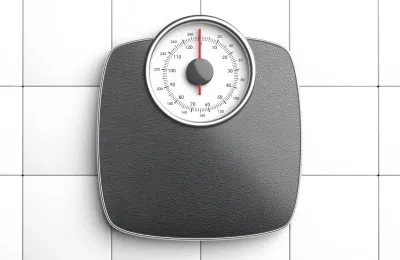Boost Your Productivity & Health: Sleep Hygiene Tips for Entrepreneurs & Parents
Chilipad Editorial Team • Apr 08, 2025

The Rest Factor: Episode Four with Chase Chewning
You can also listen to the full podcast episode with Josh Storms.
Key Takeaways
- Sleep Routine: Consistency is key—going to bed and waking up at the same time every day helps train your body clock.
- Bedroom Setup: A dark, cool, and quiet environment signals your brain it’s time to rest.
- Screen Curfew: Limiting blue light exposure before bed can improve melatonin production and sleep quality.
- Wind-Down Habits: Relaxing rituals like stretching, reading, or deep breathing prep your body for deeper sleep.
- Daily Choices: Exercise, caffeine timing, and nutrition all play into how well you sleep at night.
Quality sleep is essential for mental clarity, productivity, and long-term health. Yet for people with packed schedules—especially new parents, high performers, and entrepreneurs—maintaining healthy sleep habits can feel nearly impossible.
Late nights, unpredictable interruptions, and nonstop responsibilities often get in the way. This guide will provide actionable sleep hygiene tips to help optimize sleep, reduce sleep deprivation, and enhance overall health.
In this week’s episode of The Rest Factor Podcast, we sit down with Chase Chewning to uncover real-world strategies for improving sleep, enhancing recovery, and sustaining peak performance—even during the chaos of new parenthood.
The Impact of Sleep on Performance & Productivity
Sleep is the foundation of clear thinking, steady performance, and emotional resilience—especially for those constantly switching hats. Whether you're juggling work deadlines, parenting duties, or both, poor sleep can quickly catch up with you.
Related: Curious about mouth taping and how it affects your sleep? Read our guide on the benefits, risks, and everything you should know before trying it.
Studies show that sleep deprivation weakens concentration, decision-making, and creativity. For parents, it often leads to chronic fatigue, short tempers, and a noticeable dip in productivity, making the daily balancing act even harder.
Effects of Sleep Deprivation on Productivity:
- Impaired decision-making and problem-solving skills.
- Increased stress hormones (such as cortisol) impact emotional regulation.
- Reduced cognitive function and slower reaction times.
- Higher risk of burnout and decreased motivation.
You can improve sleep quality and maintain energy throughout the day by implementing effective sleep hygiene strategies.
How Can Entrepreneurs Improve Sleep Quality?
1. Stick to a Consistent Sleep Schedule
Maintaining a regular sleep-wake cycle is one of the most effective ways to support the body's circadian rhythm. You can optimize sleep by setting a structured bedtime and wake-up time that remains constant, even on weekends.
Tips:
- Establish a bedtime routine that signals to the body that it's time to rest.
- Avoid working late at night to prevent overstimulation of the brain.
- Use dim lighting in the evening to promote melatonin production.
As Chase Chewning, health coach and host of Ever Forward Radio, stated in The Rest Factor Podcast:
Once I was able to commit to a consistent sleep schedule, the rest of my life just fell in line. I felt well-rested, I was going to sleep easily and staying asleep, and my daily performance improved significantly."
Optimize Your Sleeping Environment
A calming and distraction-free sleep environment significantly enhances sleep quality and efficiency. External noise, excessive light, and temperature fluctuations can lead to sleep disturbances.
Environmental Sleep Hacks
- Use blackout curtains to block unwanted light.
- Maintain a bedroom temperature between 60-67°F for optimal comfort.
- Invest in a high-quality mattress and pillows that provide adequate support.
- Use white noise machines or earplugs to reduce background noise.
Reduce Screen Exposure Before Bed
Exposure to blue light from electronic devices can delay melatonin production, making it harder to fall asleep. Entrepreneurs frequently check emails and social media before bed, unknowingly disrupting their sleep cycle.
How to Minimize Blue Light Exposure
- Reduce screen time at least 60 minutes before bed.
- Use blue light blocking glasses if nighttime work is unavoidable.
- Enable ‘night mode’ on digital devices to reduce blue light emission.
Leverage Sleep Tracking for Optimization
Tracking sleep patterns can provide invaluable insights into sleep efficiency, recovery, and improvements over time. Wearable devices can monitor sleep stages, heart rate variability (HRV), and overall sleep quality.
How to Use Sleep Data:
- Track REM sleep cycles to identify patterns and trends.
- Adjust daily habits based on collected sleep metrics.
- Test different sleep enhancements, such as meditation or temperature regulation,
- and evaluate their impact.
Mindfulness & Sleep Meditation for Better Relaxation
Stress is a leading cause of sleep disruption for entrepreneurs and parents. Practicing mindfulness and incorporating meditation into a nighttime routine can enhance sleep quality.
Effective Sleep Meditation Practices:
- Use guided sleep meditation apps.
- Practice deep breathing or progressive muscle relaxation before bed.
- Journal thoughts to clear the mind and reduce nighttime stress.
Strategic Napping for Energy Boosts
For those experiencing fragmented sleep, short naps can help restore energy levels. Performance-focused sleep, such as power naps, keeps cognitive function high without disrupting the regular sleep-wake cycle.
Best Nap Practices:
- Keep naps between 10-20 minutes to avoid grogginess.
- Schedule naps during early afternoon hours.
- Avoid long naps that interfere with nighttime sleep quality.
Best Sleep Hacks for New Parents
Inspired by our conversation with Chase Chewning in the latest episode of The Rest Factor Podcast, let's discuss ways to support new parents who are navigating some of the most challenging sleep disruptions. Nighttime infant care often makes consistent, uninterrupted sleep feel impossible.
But even in the midst of newborn chaos, small, strategic adjustments can make a big difference in overall sleep efficiency, energy, and well-being.
Share Nighttime Responsibilities
- Alternate nighttime shifts with a partner to balance sleep.
- Consider sleep training methods to encourage longer baby sleep cycles.
- Accept help from family or caregivers to allow dedicated rest periods
Maximize Sleep During Baby’s Nap Time
- Take advantage of baby’s naps to rest, even if only for short periods.
- Avoid using nap time for excessive work—prioritize personal rest.
- Use relaxation techniques like mindful breathing to improve nap quality.
Maintain a Healthy Diet for Better Recovery
Nutrition plays a crucial role in supporting sleep recovery for new parents. Eating melatonin-boosting foods can enhance sleep quality and nighttime relaxation.
Conclusion
Chronic sleep deprivation impacts not only cognitive functions, but also overall health and business success. As Ana Marie Schick, host of The Rest Factor Podcast, pointed out, "The most successful people in health and wellness are the ones who build sustainable habits over time. Sleep hygiene isn't just about one night—it's about consistent small changes that lead to lasting benefits.”
By incorporating consistent routines, optimizing sleep environments, and reducing sleep disruptions, high performers, entrepreneurs ,and parents can enhance sleep quality and overall well-being. Small changes—such as following a consistent schedule, implementing effective wind-down routines, and leveraging sleep tracking—can significantly improve both nighttime recovery and daily performance.
Prioritize sleep today and experience better mental clarity, energy, and long-term success.
The Rest Factor: Listen to Previous Episodes
You can also catch the full episode—and browse past Rest Factor podcasts—on your favorite podcast platform with just a click.









